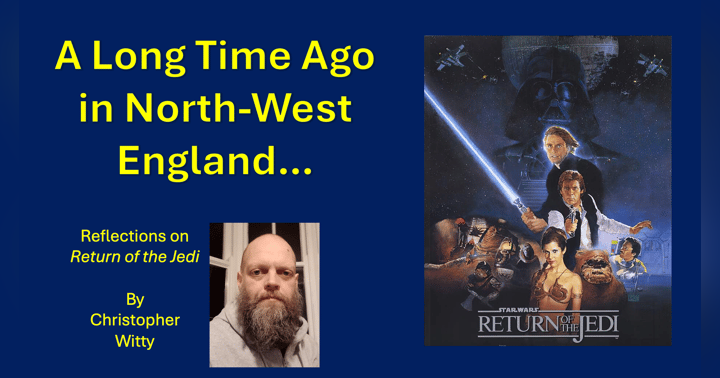Casino Royale: A Book-Film Faceoff

Even though I’m a voracious reader, I have somehow managed never to read a James Bond book until recently. (I also never saw a Bond movie until Die Another Day came out in the 00s. Now I have seen them all many times over, since John is crazy for them.) My very close friend Syedah and her wife Cori are both big Bond fans as well, and they’ve written a whole stack of fanfiction around the famous spy, based on the Ian Fleming novels (among their many other topics of interest; as I struggle out another 1500-word essay, I am truly envious of their prolific writing capabilities!). In my small circle, I am the odd one out. Before Casino Royale, Bond just never really piqued my interest that much, but that doesn’t really surprise me. Until Daniel Craig, I didn’t really perceive that Bond had much of an inner life. I am one of those readers who is much more concerned about what characters are thinking than what they are doing. James Bond, in both the novel series and the films, is all about action and appearance, but there doesn’t seem to be much substance below the flashy exterior. He’s like a top-of-the-line sports car, whereas I’d be much more interested in driving a classic car with lots of history and personality[1]. Daniel Craig changed my perception of who James Bond can be; he brings such intensity and such a strong sense that there is more going on below the surface that for once, I do want to see where he’s going next. Craig’s Bond is a 1968 Mustang GT screeching around corners and down alleys, a la Bullitt.
During Bond week, we engaged with a lot of fans on social media who are absolutely addicted to these stories, both in film and book form. One person suggested that we read the novel Casino Royale to contrast the original story with the film adaptation, and it sounded like a new and interesting way to engage with the material, so I jumped on the public library website, checked out an audio version (narrated by Dan Stevens, who does a lovely job), and popped it on the Bluetooth on the commute to work. I am so glad I took the suggestion, because it enriched the Bond series for me in many ways. I find Casino Royale to be a near perfect film; it exceeds the success of the book, but even the exercise of exploring the different choices between book and movie was illuminating.
The James Bond of Casino Royale is not the same as the smooth Bond I initially encountered in the Pierce Brosnan and Roger Moore films. He’s a lot more raw and tough. Book Bond is a former military man now engaged in espionage during the Cold War, and Bond the man is arguably colder than the war itself. He does become emotional at times, but he is also extremely guarded. This Bond has also not yet proven himself, and he doesn’t have the maturity or experience to avoid mistakes. Casino Royale’s Bond also comes off as a bit of a nihilist. One gets the sense that he suffers from a degree of PTSD. He doesn’t believe in anyone, including himself, and he is just going through the motions of life. That’s why it’s such a surprise to him that he falls so hard in love with Vesper Lynd. She’s not just another pretty woman; she’s smarter than Bond, and brave enough to stand up to him.
The film adaptation takes a lot of these facets of Bond’s story and brings them to the forefront. Daniel Craig’s Bond is not suave and sophisticated, nor is he experienced. He’s just earned his double-0 status, but even though he doesn’t have a lot of years in service, he’s not afraid to take a big risk. Craig’s Bond has a “nothing to lose” attitude, and he’s used to getting his way, one way or another. Eva Green’s Vesper is the sophisticated one in this film; we later find that much of her calm demeanor is an act, but she’s better at it than Bond. He can put on a tux and look the part, but he’s clearly more at home busting a guy up in a public restroom. Regardless, both Bond and Vesper in the film version are quite similar to their book counterparts.
One of the biggest differences with the Bond character comes at the end of the story. The Casino Royale novel ends with a broken Bond, betrayed by Vesper. The little faith in humanity he was able to muster is now truly destroyed. Saying to his contact about Vesper’s suicide, “The bitch is dead now,” Bond closes the book—both figuratively on Vesper and literally, since it’s the actual last line of the novel. This line appears in the film as well, but it’s not the final word. Rather, after Craig’s Bond says this to M, she reminds him that he very likely owes his life to Vesper making a deal to save him. Bond then looks through Vesper’s phone and begins his conquest to take out those involved in her death, which continues into the next film Quantum of Solace. It’s M’s motherly quality that allows Craig’s Bond to hold onto his humanity, where book Bond (whose M was emotionless and bureaucratic) could not.
The most major character change between the book and the movie can be seen in the character of Le Chiffre. Ian Fleming strongly modeled Le Chiffre after Aleister Crowley (at least per Wikipedia), both in appearance and attitude. The Le Chiffre of the novel is short and fat; he is described in grotesque terms. (The amount of times his gassiness and farts are discussed is honestly overwhelming.) He has voracious appetites for both food and sex. Le Chiffre has some commonality with Bond in his “nothing to lose” attitude. He works for SMERSH, but he uses their finances as if they were his own, and when he gets into trouble, he trusts he is smart enough to get out of it. The plot of the novel revolves around Le Chiffre setting up a high-stakes baccarat game (baccarat being similar to blackjack) to regain the money he lost in a brothel scheme. Le Chiffre invested a great deal of SMERSH funds into a string of brothels, but a law against prostitution thwarts his business. Bond, as an excellent baccarat player, is sent to ensure Le Chiffre loses and needs to turn to the British government for refuge, thus becoming an informant against SMERSH.
In contrast, the poker game in the Casino Royale film comes about after Le Chiffre’s scheme is directly disrupted by Bond. Le Chiffre is involved in laundering money for terrorists and warlords through the stock market. He has invested money in a high-tech airline company with the idea to short the company and destroy the prototype plane. Bond foils the plan, and Le Chiffre is now in debt to the worst people in the world. He has a vested interest in winning back the money before they find out, but Bond foils him again. The movie version of Le Chiffre doesn’t have the weaknesses of the book version. His plans should have worked, if not for the intervention of the meddling MI:6 agent. He is also much more physically attractive than the book counterpart (bleeding eye or not); choosing Mads Mikkelsen, a former dancer with a graceful, athletic body type, makes a lot more sense for the character of Le Chiffre. His outward appearance matches his inner discipline; the book version of Le Chiffre is sloppy outside and in. He is careless about both his appearance and his schemes, and he’s gotten by on luck and chance rather than skill and intelligence. Other adaptations of the book have not made these same changes to the character of Le Chiffre; previous actors in the role included Peter Lorre and Orson Welles. The 2006 film version of Le Chiffre gives the cold book version of Bond a run for his money. Where Bond is cold, Le Chiffre is ice; until he finally breaks in the torture scene, he never loses his cool, even under intense pressure. He is a disciplined and ruthless planner, always many steps ahead of everyone around him. Only when he encounters his unpredictable opposite James Bond does he learn what it means to fail.
Most of the time, with a few notable exceptions, movies based on books fail to live up to expectations. When you’ve read a book prior to seeing a film adaptation, you already have your own mind movie that you’ve made up, and a film can’t possibly trump the force of your imagination. I’d say that the 2006 film of Casino Royale is one of the notable exceptions. By making some changes to the characters and modernizing the plot, Casino Royale takes the origins of Bond to a completely new place, reinvigorating the entire series. These updates sharpen the story and make it more complex and compelling, and importantly, they made me want to see what would happen next, with a character whose exploits I had believed to be exhausted.
Comfort Films 18: Casino Royale (Released January 29, 2022)
[1] Of course, Daniel Craig gets the best of both worlds in Casino Royale, when he wins a classic Aston Martin DB5 like the one first seen in Goldfinger from Dimitrios.







